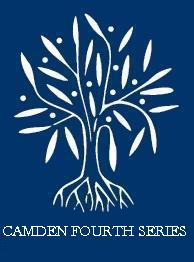No CrossRef data available.
Article contents
Sir Richard Cocks His Charge to the Grand-Jury of the County of Gloucester, At the General Quartersessions Held for that County, April the 30th 1717. London, Printed by Samuel Palmer, and Sold by J. Roberts at the Oxford-Arms in Warwick-lane. MDCCXVII (Price 3d.)
Published online by Cambridge University Press: 21 December 2009
Extract
I am commanded by the King's Proclamation, to enforce and recommend to you the indispensable Obligations you lye under, of becoming a sober and religious People. It is the Interest of Princes, to make their Subjects virtuous; for by the means the End of all Laws may be answer'd, with- [A 2–4] out having recourse to severities. The Design of all human Laws is, To secure Property, to oblige Men out of fear of Penalties, to live honestly and justly, and to honour and obey their Superiors. But these can restrain no further, than the Fear and Danger of being discovered can make Impressions upon us; whereas if Men were really virtuous and good, there would be no occasion for Penalties to awe them; for no Privacy or Security whatsoever can tempt a good Man to do the least Injustice to any one, much less Acts of Violence and Oppression. As for what concerns a future State, that being properly the business of the Clergy, I will not invade their Province. But since so many of them are graciously pleased to honour this Court, and are ready upon all occasions to assist us; I will beg leave for once to take a Text out of the Bible, to be the Foundation of my following Discourse. When thou takest any matter in hand, consider the End thereof, and thou shalt never do amiss. Though upon Second Thoughts I find I had no Occasion to ask this Favour, since we have the Remark of an old Lawyer much to the same Purpose: That a wise Man begins all his Actions from the End. To illustrate this by Example. Did but Men consider the unhealthfulness, Poverty, and other ill Consequences that necessarily attend Drunkenness, they wou'd [5] not so often put their Hands with full Glasses to their Mouths. The Stat. of King James the First against this detestable Sin of Drunkenness, is very properly for your Perusal.
- Type
- Research Article
- Information
- Copyright
- Copyright © Royal Historical Society 1992
References
page 81 note 1 This looks like a gloss on Luke 14: 28.
page 81 note 2 4 Jac. 5.
page 82 note 1 Charles XII of Sweden was the ally of England and Holland in 1700; but after the war broke out in 1702, he tried to stop the Anglo-Dutch trade with the Baltic provinces which Russia had occupied. George I, desirous to add the duchies of Bremen and Verden, to his electorate of Hanover, seized them and stood against Sweden. In 1716 Ch. XII threatened to support the Jacobites against George. The Swedish amabassador, Count Gyllenborg, was so active in plotting against England that he was arrested, in spite of diplomatic usage, his papers were seized and they proved him so thoroughly guilty that no nation said a word in his defense.
page 84 note 1 An allusion to 1 Ki 12: 11, and 2 Chro 10: 11, 14.
page 85 note 1 Mary Tudor revived the heresy laws and persecuted English Protestants; from 1555 to 1558 she sent 300 persons to the stake.
page 85 note 2 The attempt made by Guy Fawkes and a group of Catholics to blow up Parliament and the King on 5 Nov. 1605.
page 85 note 3 There were a number of plots, real or imaginary or contrived to fit the necessities of politics, against Ch. II, among which the plot revealed by Titus Oates.
page 85 note 4 James II recalled the ancient charters to replace them by new ones, that were intended to make corporations more docile; he tried to pack parliaments, and extended his prerogative to appointing Roman Catholic officers in the army, Catholic divines in the universities, in defiance of all the laws of the realm.
page 87 note 1 The son born to James II by his second wife, Mary of Modena; he was to be the Old Pretender, or the Chevalier de Saint-George. Rumour ran that he was a changeling, in order to accredit the legend that the child was not legitimate.




